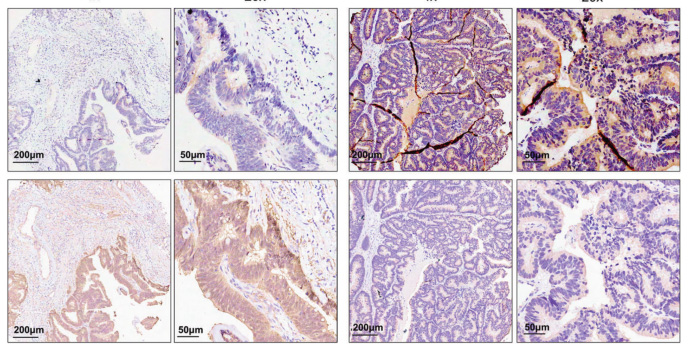According to a recent GLOBOCAN, colorectal cancer (CRC) has the third highest incidence of all cancers and the second highest mortality rate in 2020, according to estimates from the International Agency for Research on Cancer (IARC). A large proportion of colorectal cancer patients are diagnosed at an advanced stage, and mortality is mainly related to the high frequency of metastases, especially liver metastases, partly due to direct circulation through the portal vein.
Early screening and improved management programs have contributed to significantly improved patient outcomes, but the needs of patients with progressive disease remain unmet. Therefore, a better understanding of the molecular mechanisms of colorectal cancer initiation and progression is required to establish more effective biomarkers and therapeutic targets.
Recently, researchers from the University of Science and Technology of China published an article entitled “KCTD9 inhibits the Wnt/β-catenin pathway by decreasing the level of β-catenin in colorectal cancer” in the journal Cell Death and Disease. The results of the study showed that KCTD9 inhibited the proliferation and metastasis of colorectal cancer cells by inhibiting the Wnt/β-Catenin pathway.
Colorectal cancer (CRC) is the second leading cause of cancer death worldwide. However, the molecular mechanisms of CRC progression remain to be further investigated to improve patient outcomes. In this study, we found that KCTD9, a member of the KCTD9 gene family, was generally down-regulated in colorectal cancer tissues, and the expression of KCTD9 was negatively correlated with clinical stage. Survival analysis showed that patients with low KCTD9 expression had a poorer prognosis.
Functional analysis showed that KCTD9 overexpression inhibited the proliferation and metastasis of colorectal cancer cells, while KCTD9 knockout promoted the proliferation and metastasis of colorectal cancer cells. The expression of KCTD9 in colorectal cancer cells was regulated by overexpression or knockout, and the results showed that the expression of KCTD9 positively affected the degradation of β-catenin, resulting in the inhibition of Wnt signaling and decreased expression of Wnt pathway target genes.
Mechanistically, the researchers found that KCTD9 was associated with zinc transporter 9 (ZNT9), a coactivator of β-catenin-mediated gene transcription. Overexpression of KCTD9 gene or knockdown of ZNT9 gene increased β-catenin ubiquitination and proteasomal degradation. In turn, the KCTD9-ZNT9 interaction disrupts the interaction between β-catenin and ZNT9, resulting in decreased expression of β-catenin target genes and inhibition of Wnt signaling.
Experimental study of KCTD9 inhibiting the growth and metastasis of colorectal cancer in vivo
In conclusion, KCTD9 may serve as a potential target for judging the prognosis and treatment of colorectal cancer. Furthermore, based on the findings of this study, it would be valuable to study the expression profile of KCTD9 in other cancer types, especially those known to be aberrantly driven by Wnt signaling.
References:
Hanhui Yao et al. KCTD9 inhibits the Wnt/β-catenin pathway by decreasing the level of β-catenin in colorectal cancer. Cell Death Dis. 2022 Sep 2;13(9):761. doi: 10.1038/s41419-022-05200 -1.









